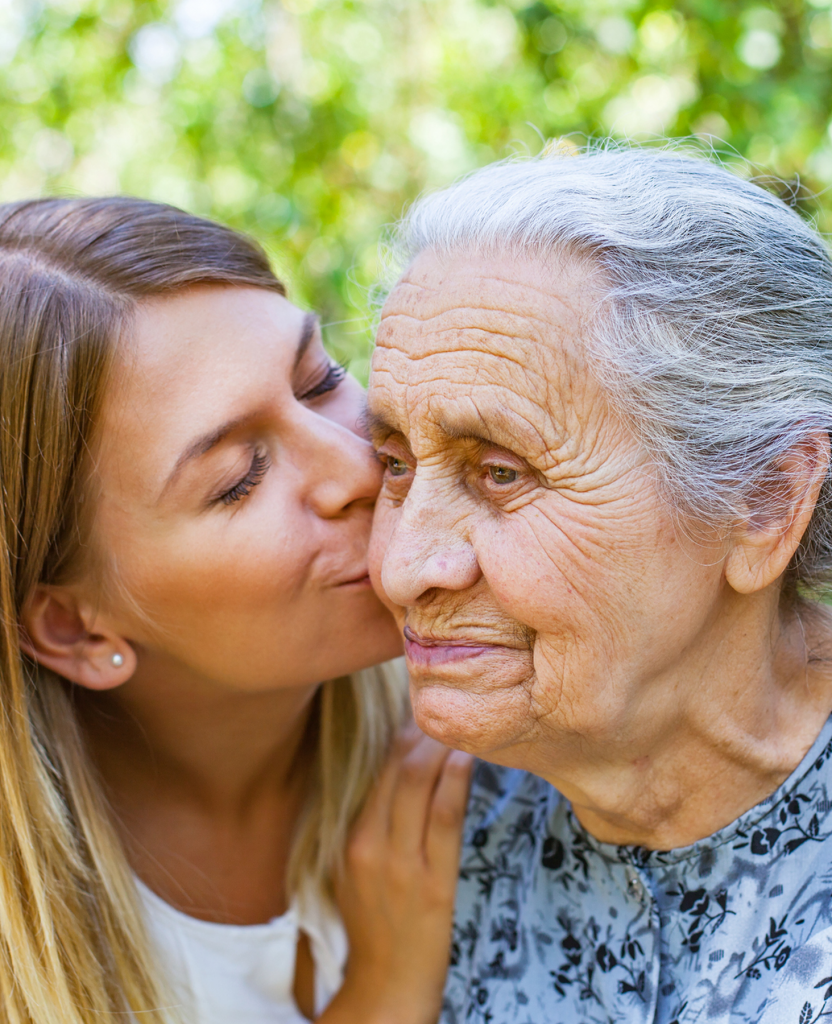Tips For Calming Someone with Dementia
People with Alzheimer’s disease and other cognitive conditions may easily get agitated, disagreeable, or irritable, especially in the later stages of the progression of dementia. When agitated, someone with a cognitive disorder can become restless and anxious; they might pace around, lose sleep, and exhibit unwarranted aggression. Some people may even wind up hurting themselves or those around them.
As a caregiver, relative, or close friend to a loved one with dementia, don’t take reactions like this personally. Agitation is just one of the behavioral and psychological symptoms that can occur at various stages of dementia. The best thing you can do for your loved one is to help them manage these symptoms.
Fortunately, there are effective ways to help a person with dementia remain calm and let go of their agitation and anxiety.
At Town Square Princeton, we are committed to caregiver education as part of our focus on helping our members live well with dementia – contact us today to learn more about how we offer the best adult day programs in the Mercer County area or to schedule a tour.

How Can a Calm Environment Contribute to Less Agitation for People with Dementia?
The environment plays a significant role in the comfort, well-being, and safety of people with dementia. Their once familiar environment and routine can suddenly become foreign, leading to disorientation and confusion.
One of the most important things you can do as a caregiver is to create a familiar, dementia-friendly environment that attends to your loved one’s needs. A calm environment helps the patient in three main ways:
- Minimizes confusion. Confusion is a common trigger for agitation and restlessness in dementia patients. You want to create a quiet and serene space that promotes concentration, amplifies safety, and reduces anxiety.
- Creates independence. A dementia-friendly environment encourages self-reliance in the individual so they can enjoy their everyday activities. This not only promotes a sense of autonomy but also reduces feelings of frustration.
- Promotes memory retention. Constant or frequent episodes of anxiety impair memory retention and other cognitive functions at any age. A serene environment with simple routines and a familiar look and feel can help implant schedules and expectations into the patient’s long-term memory.
Tips for Creating a Calm Environment for Loved Ones with Dementia

Creating such an environment is not a one-off task but an ongoing effort. You must also remember that there is no one-size-fits-all approach, as everyone has unique needs and preferences. Here are some tips to help you get started on creating a calm environment for your loved one with dementia:
- Eliminate reflections, glare, and shadows that a person with dementia may find frightening. This includes getting rid of mirrors and keeping your home well-lit with easy-to-reach light switches.
- Keep the noise level low. Turn down the TV and instead let them bask outside to enjoy natural sounds or use soft, calming music to create a peaceful ambiance. Familiar songs can help reduce anxiety and promote relaxation.
- Reduce clutter by keeping the living space neat and well-organized. Too much clutter can overwhelm your loved one with sensory information. This can weigh down a person living with dementia and make it harder for them to focus on what’s important.
- Set the thermostat and AC to a moderate level. A cozy atmosphere in terms of temperature will minimize discomfort.
- Incorporate soft, comfortable furnishings that your loved one likes. If they enjoy a particular scent or décor, be sure to use those. This helps with healthy sensory stimulation and familiarity. Lastly, avoid surprises. People with dementia are less able to adapt and process new information than cognitively healthy people, meaning they thrive on familiarity. Familiar routines and activities are paramount.
WHAT COMMUNICATION TECHNIQUES WORK BEST FOR SOMEONE WITH DEMENTIA?
Studies show that people living with dementia tend to experience communication difficulties and gradually lose the ability to understand regular verbal and non-verbal cues.
This is why caregivers must minimize communication breakdowns that may cause stress, anxiety, and agitation. Bridging this communication barrier in a way that shows care, love, and compassion is not always easy.
Communicating with someone who has a cognitive disorder can feel frustrating. But by practicing the following communication techniques, you can better interact with your loved one:
MAINTAIN A CALM AND REASSURING DEMEANOR
Your tone of voice, body language, and facial expression should convey ease and relaxation. By prompting while remaining calm, you can steer the conversation while avoiding conflict.
USE POSITIVE REINFORCEMENT
Validate and acknowledge what your loved one has to say, even when it doesn’t make logical sense or is disconnected from reality. Empathy and understanding will make anyone feel heard and valued.
SPEAK IN SIMPLE LANGUAGE
Don’t speak abstractly – be direct and straightforward in order to be understood. Use visual cues, gestures, and simple instructions to support verbal communication. Also, avoid non-literal phrases such as figures of speech.
TALK PATIENTLY
Allow your loved one to express themselves fully and give them time to understand, process, and respond to queries. You may have to be patient if your loved one begins talking about something that isn’t relevant.
AVOID ARGUING AND YELLING
Even if you’re in the right, pressing an issue or raising your voice will not actually convince someone with dementia, as they likely may not be able to consciously change their mind. Arguing will not achieve anything and just lead to conflict and agitation. If you are getting nowhere in the conversation, drop the issue and try bringing it up again later.
APPLY SENSORY STIMULATION TECHNIQUES
Sensory stimulation is a subtle yet profound communication approach that can promote a sense of calm and well-being. This technique engages senses through everyday activities, sounds, foods, and familiar objects. Sensory stimulation can encourage your loved one to communicate effectively and engage with the people around them.
For instance, holding their hands, giving them a comforting hug, or offering a gentle shoulder massage can communicate your love and empathy in ways no words could. Even something as simple as photos and books connected to cherished memories can open up paths of communication and connection.
What Activities and Engagements Can Help Calm Someone with Dementia?
Activities such as the following tend to promote calm and lower stress, but will vary based on the personal preferences of the individual with dementia.
- Organizing, folding laundry, baking, knitting, and other similar activities that promote a sense of purpose, relaxation, and accomplishment
- Sensory stimulation activities such as listening to relaxing music, cuddling with pets, and watching familiar films
- Socializing and reminiscing with family, friends, and professional caregivers
- Non-strenuous physical exercises such as yoga, swim aerobics, slow dancing, and beanbag baseball
- Creative activities such as painting, jigsaw puzzles, and simple crafts
Seek Professional Support and Guidance from Town Square Princeton
Town Square Princeton, central NJ’s premier senior day enrichment center, offers our members social connections, therapeutic reminiscence, learning, and fun during weekdays, helping them to find engagement and meaning each day.
Our programming also allows members’ primary caregivers the ability to deal with other responsibilities or take a respite, secure in the knowledge that their loved ones are enjoying an exciting day in the company of their peers and highly-trained dementia care professionals. Contact us today to find out more or set up a tour of our center. For those located in other regions of the Garden State, our locations at the Jersey Shore in Brick and in Marlton offer the same compassionate services and support for members and their loved ones.


